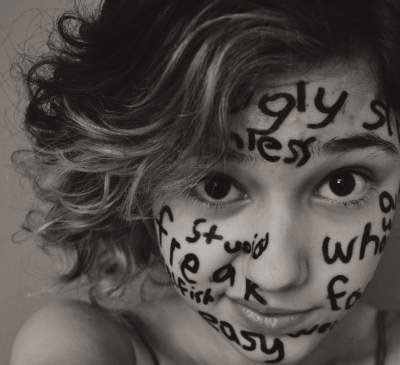All Nonfiction
- Bullying
- Books
- Academic
- Author Interviews
- Celebrity interviews
- College Articles
- College Essays
- Educator of the Year
- Heroes
- Interviews
- Memoir
- Personal Experience
- Sports
- Travel & Culture
All Opinions
- Bullying
- Current Events / Politics
- Discrimination
- Drugs / Alcohol / Smoking
- Entertainment / Celebrities
- Environment
- Love / Relationships
- Movies / Music / TV
- Pop Culture / Trends
- School / College
- Social Issues / Civics
- Spirituality / Religion
- Sports / Hobbies
All Hot Topics
- Bullying
- Community Service
- Environment
- Health
- Letters to the Editor
- Pride & Prejudice
- What Matters
- Back
Summer Guide
- Program Links
- Program Reviews
- Back
College Guide
- College Links
- College Reviews
- College Essays
- College Articles
- Back
The Evil Hidden in a Phone
Teenage years are difficult. This statement is an undeniable fact, supported by generations of people. The addition of social media has only worsened the quality of teenagers’ lives. Mental health problems in teens are on the rise: 13% of twelve to seventeen-year-olds have been diagnosed with depression and 32% with anxiety (Mir, Novas, Seymour). The effect social media is having on the mental health of young people is of extreme importance, and this major problem needs to be addressed in schools and homes.
I believe communication and counseling are key components in resolving the problems created by social media. To solve the issue, adults and students must be open with one another. Adults, especially parents, teachers, and coaches, should offer help to students struggling with all issues, whether it's stress over a homework assignment or clinical depression. Guidance counselors should be readily available to help students navigate through their issues. Additionally, parents and guardians should monitor the social media use of their teenagers. Students need to be more in touch with the physical world in order to begin the long battle against social media-related issues. Spending seven hours a day on social media platforms has never - and will never - produce positive effects. In limiting the time teenagers can spend on social media, adults are forcing their youth to participate in and acknowledge the real world, where they will see the reality instead of the expectation. On the other hand, students must be willing to open up to adults about problems they are facing. The problem cannot be fixed if it is not first addressed, so teens and students should be provided with a space where they can safely and confidentially share their feelings.
Mental health issues stemming from social media have harshly climbed their way to the top of the list regarding issues during teenage years. The most efficient way to fight these issues is to lessen the amount of time teenagers spend on social media, then allowing the youth to open up about their feelings and issues in a safe, reliable environment.
Works Cited
Mir, E., Novas, C., & Seymour, M. (2020, August 21). Social Media and Adolescents' and Young Adults' Mental Health. Retrieved September 29, 2020, from center4research.org/social-media-affects-mental-health/. Accessed 21 November 2020.

Similar Articles
JOIN THE DISCUSSION
This article has 0 comments.

This piece was originally written for a scholarship. The piece discusses the effects of social media on teenagers and the possible solutions.